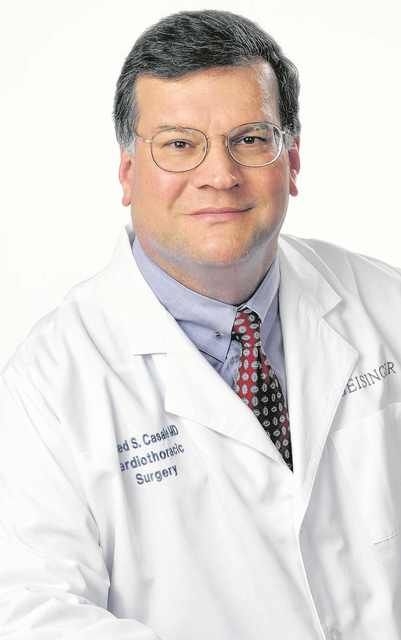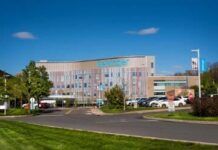Click here to subscribe today or Login.
Circumstances have had me thinking a lot about legacy and transfer of traits and knowledge across the ages. Last week I was delighted to present Surgical Grand Rounds at the Johns Hopkins Hospital, the wellspring of my surgical career. Strengthening the bond with mentors, colleagues and trainees was a great treat. Then, I spent the weekend in Chicago with Kate, Andy and new baby Rowan, now 9 weeks old, bright-eyed and active, still with a wisp of red in her hair, that we’re all trying to attribute to some long lost ancestor.
I’m still cleaning out Dad’s house in Dallas and coming upon all sorts of old photos and documents including his grammar school autograph book with not-so-witty saying written in the hand of not only classmates but relatives I’ve only heard of; and now that I’ve assumed responsibility from Dad for looking after my 105-year-old great aunt, I’m searching for the whereabouts of some far-flung cousins using my cousin Frank’s elaborate genealogical research.
All this has me realizing how important the holiday season can be to our wellness by giving us the chance to firm up our insight into our genetic predispositions.
Whether your family lives near or far, the holiday season is the time you usually try get together to celebrate and share a meal. Regardless of distance and hectic schedules, family members make getting everyone together a priority.
So, this holiday season, while you have much of the family together, between catching up and reminiscing about the good old days, take the opportunity to talk about your family health history as well.
You and your family members share genes as well as some similar behaviors, environments and culture all of which may impact your risk of developing certain health conditions. Being aware of all of these factors can benefit you and all of your family members.
Common conditions such as heart disease, cancer, diabetes, as well as rare diseases like cystic fibrosis, can run in families. If one generation of your family has a condition like high blood pressure, it’s not unusual for the next generation to also have high blood pressure.
Tracking your blood relatives’ illnesses and conditions is important in being proactive about preserving your health.
The most important relatives to include in your family health history are your parents, siblings and your children. From there, you may also want to talk to grandparents, aunts and uncles, nieces and nephews and half siblings.
Ask your relatives questions about any diseases or conditions they may have and when they were diagnosed in order to find out about your risk for them.
Ask them if they’ve had any chronic diseases, including diabetes, heart disease, high blood pressure or high cholesterol. You should also ask them if they’ve had any other serious diseases such as stroke, heart attack or cancer. Just as importantly, ask how old your relatives were when they were diagnosed with these diseases. Asking about your family’s ancestry and what country you came from can also help you understand your family health history.
Although it may be difficult, you should also ask about relatives who have passed away – about the cause and age of their passing.
Getting to know your family health history gives you valuable information about the risk of specific health concerns, but having blood relatives with medical conditions doesn’t automatically mean that you will develop the same condition. Similarly, a person with no family history of a condition may still be at risk of developing it.
Understanding your family medical history gives you the opportunity to discuss your risk of diseases and conditions with your doctor as well as to take steps to reduce your risk.
For instance, if you have an increased risk of certain cancers due to your family history, your doctor may recommend starting screenings such as mammograms and colonoscopies sooner and having them more frequently.
Having certain health conditions running in your family may lead your doctor to recommend lifestyle changes to lower your risk as well.
These lifestyle changes are beneficial to you no matter your age or family history – eating a healthy diet, regularly exercising, maintaining a healthy weight and not smoking can improve your overall health and lower your risk of developing a litany of health conditions.
Many medical practices in our region can provide information about the MyCode Community Health Initiative. Your participation in this effort by sharing your medical record and DNA information will help us develop new treatments and may also help your family. If you are interested in signing up for MyCode, call (toll-free) 1-855-636-0019.








